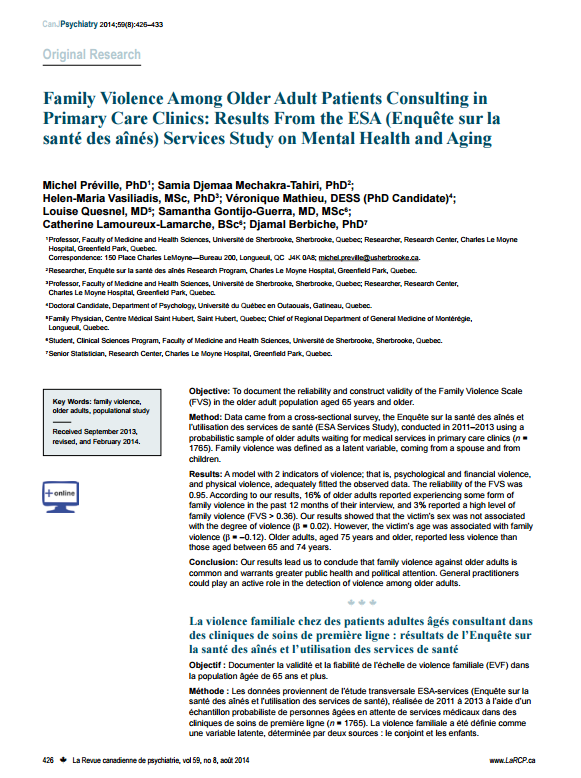The following resource is part of the Family Violence Initiative, funded by the RCMP. Find similar tools by searching for the FVIF tag or consult the list of available resources.

"Family violence is a major public health problem, with important physical and mental health consequences for the victims. In Canada, since 1980, it is a crime.1 Family violence in the elderly is also an important problem because of its association with psychological distress,2,3 an increased use of health services4 and a high risk of mortality.5,6 However, few studies have also considered the issue among older women and men.3,7–16 The prevalence of family violence in older adults varies from one study to another. These inconsistencies may be related to differences in the sociocultural context of the populations studied or to methodological differences regarding the definition and measurement of family violence,3,17–20 which make it difficult to interpret results.4
Clinical Implications
- Our study provided evidence-based data on the prevalence of family violence in the elderly population waiting for health services in primary health services clinics.
- Our study documented the validity and reliability of the FVS which could be used in the elderly population waiting for health services in primary health services clinics.
- Our study gave estimates of unmet needs in the elderly population in primary health services clinics.
Limitations
- We used self-reported information from respondents.
- Clinical validity of the FVS is limited.
- Our sample was limited to the Quebec population"
Source: Canadian Journal of Psychiatry

















